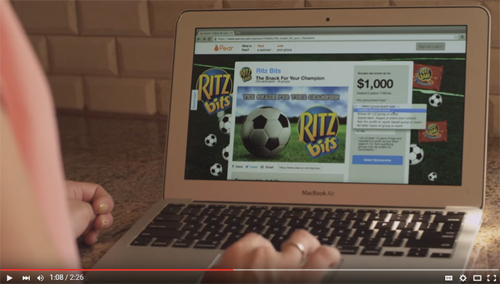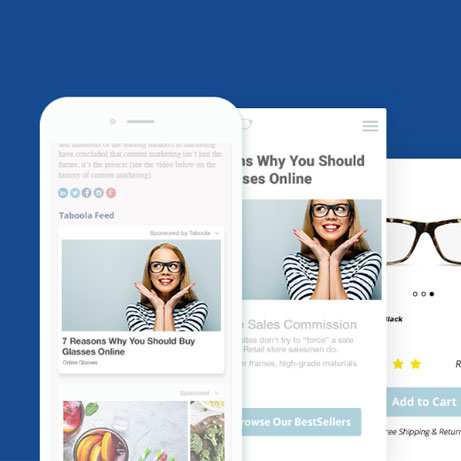How Big Brands can Use Sponsorship to Drive Authentic Engagement

All marketers strive to develop one-on-one engagement with their target audiences.
Unfortunately, big brands can struggle to build personal and meaningful consumer relationships at scale. When larger brands are unable to scale their marketing campaigns in a way that's personal, consumers often find them untrustworthy and unauthentic. In addition to deterring brand loyalty, generic marketing campaigns that neglect individual consumers can also cause a blow to a company's bottom line.
Big brands often feel limited when trying to connect with consumers in a meaningful way due to the sheer size of their customer base. In today's world, this limitation is more of a perceived barrier rather than an actual one. Any brand - no matter the size - can build organic connections and implement personalized marketing programs that drive sales. Notably, grassroots marketing through scalable technology and engagement on social networks make authentic consumer engagement possible.
For new and old customers alike, localized sponsorship is a proven strategy to develop trusted and authentic relationships. Better than most marketing campaigns, sponsorship allows big brands to interact more intimately with consumers. While brands have always been able to sponsor local initiatives, social media now allows them to scale this investment, which gives marketers the power to leverage social interactions and break through traditional advertising barriers. Like never before, brands can further their business objectives with marketing that matters.
For today's marketers, true connections are built through three key social attributes: community, reciprocity, and personalization. With an engagement strategy that leverages social awareness, brands will be better equipped to create authentic, lasting customer relationships and strengthen brand affinity.
Community
First, brands have to understand that they revolve around consumers, not vice-versa. A consumer's own community is the center of their world, and brands can cultivate authentic relationships by positively impacting this community.
With the right tools and partners, it is possible to successfully scale marketing campaigns at a local level. From sports teams to schools, big brands can partner with organizations on a grassroots level to earn an 'in' with consumers otherwise inaccessible. For example, if a brand purchases equipment for a local t-ball team, they earn connections with that team's entire network. This will earn them long-term brand awareness and loyalty.
Reciprocity
When a brand sponsors a local organization, success becomes symbiotic. Whether providing monetary support, services or any other group needs, sponsorship gives local organizations resources and platforms otherwise missing. In exchange for this sponsorship, brands can ask community groups to engage in positive digital and social interactions, such as sharing branded content like retweets, Facebook likes and videos.
The idea is simple: consumers who receive something from a brand will feel more compelled to support the brand in return. For example, Ritz Bits is sponsoring hundreds of youth soccer teams around the U.S., earning more than 100,000 digital brand engagements and finding its way into the shopping carts of soccer moms across the nation. By treating sponsorship as a medium for local empowerment, brands can connect with consumers in a way that provides value for both.
Personalization
Brands that have insight into the wants and needs of their ideal customers have a powerful tool in their arsenal. Brands can use this data to develop hyper-personalized marketing programs that are tailored to that group's unique affinities.
With so many local organizations needing sponsorship, brands can choose from among a wide variety of interest groups and geographies to directly reach their target consumers and audiences. This ensures that brands can align their sponsorship spend with ongoing marketing objectives.
Ritz Bits is also a prime example of personalizing campaigns based on its target audiences' habits, preferences and needs. The program targeted a large but specific audience (families with kids) and enabled Ritz Bits to develop an authentic and meaningful relationship with an influential audience, rather than marketing to an untargeted wider demographic.
With minimal effort, brands of all sizes can scale sponsorship to align their specific industry standards and sales goals with consumers' interests. An incremental shift in dollars toward marketing that matters is an effective way for big brands to bridge the gap with individual consumers. With a simple balance between generosity and sales, any business can use sponsorship to drive customer engagement.
Amish Tolia is co-founder and Chief of Strategy at Pear, a company enabling brand marketers to build meaningful connections with community groups at scale.











